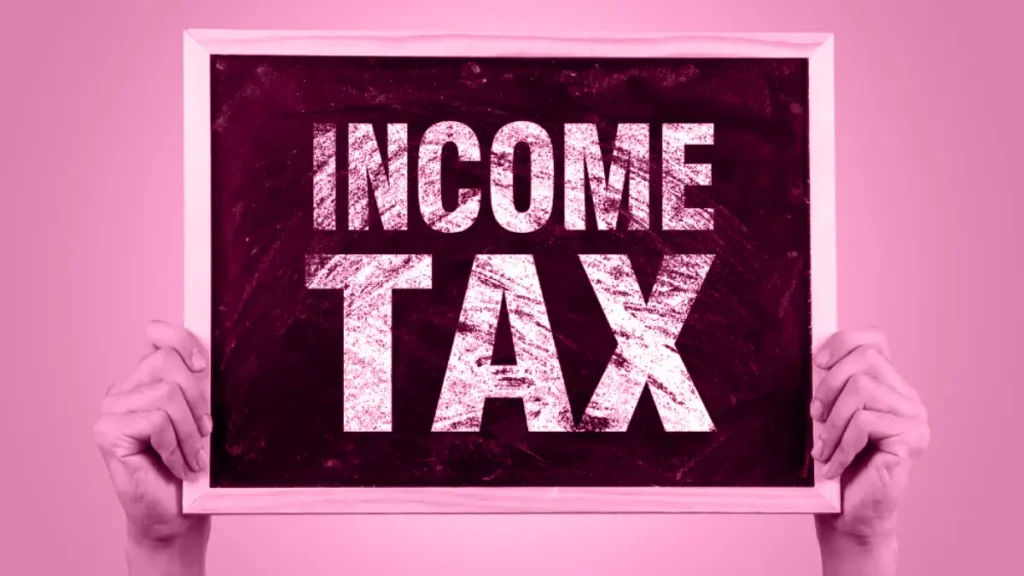In today’s digital age, cryptocurrency has emerged as a popular financial asset. However, many individuals overlook the importance of filing taxes for their crypto transactions which leads to crypto tax penalties later. The realm of crypto taxes is complex, but understanding it is crucial for every trader. In this comprehensive guide, we will delve into what happens if you don’t file your crypto taxes and the penalties. Also how modern tax departments are more equipped than ever to track these transactions. Potentially leading to a crypto tax penalty and exploring the cryptocurrency tax consequences.
Understanding Crypto Taxes
Cryptocurrency taxation is a relatively new but rapidly evolving area in the financial world. Essentially, most countries view cryptocurrencies as property, and hence, they are subject to capital gains taxes. This means that any profit made from the sale or exchange of cryptocurrency is taxable. The complexity arising from the valuation, reporting, and compliance aspects of these transactions can vary greatly from one jurisdiction to another.
Anonymity of Crypto Transactions
Crypto users often think their transactions are completely anonymous, but that’s a misconception. While cryptocurrencies provide more privacy than traditional banking, they aren’t entirely anonymous. All transactions are recorded on a public ledger. Advanced blockchain analysis can trace them back to individuals, risking non-compliance and potential tax penalties.
Techniques Used by Tax Authorities to Identify Crypto Trading
Tax authorities employ advanced strategies, including algorithms, AI, and machine learning, to detect unreported income and crypto tax penalties. For example, the Directorate of Income Tax (Systems) categorizes data as ‘high-risk VRU’ following the Central Board of Direct Taxes’ strategy. Transactions exceeding thresholds or showing suspicious patterns trigger closer examination. This process, highlighted on March 14, 2022, dispels the myth of untraceable crypto activities and re-analyzes historical data, possibly reopening old tax assessments.
Reach of the Income Tax Department
The Income Tax Department is becoming more skilled at using modern technology to keep an eye on financial transactions, including those with cryptocurrencies. They use sophisticated software and data analysis tools to spot people who haven’t declared their cryptocurrency dealings. This technology greatly improves their chances of catching tax evasion and making sure people follow tax laws.
Process of Scrutiny by Tax Authorities
Upon flagging a taxpayer’s account, the tax authority initiates a detailed scrutiny process. This involves a comprehensive examination of the individual’s financial records, bank statements, and transaction histories, including those involving cryptocurrencies. The scrutiny aims to uncover any discrepancies between the reported income and the actual financial activities.
Consequences of Not Filing Crypto Taxes
Failure to file crypto taxes can lead to several serious consequences, including a crypto tax penalty. Firstly, there are legal implications. Which can range from audits and penalties to more severe actions like criminal prosecution in extreme cases. Financially, individuals can face hefty fines, penalties, and interest on unpaid taxes. These penalties can accumulate over time, leading to substantial financial burdens and the risk of incurring additional crypto tax penalties.
Notice under Section 148A
One of the specific actions a tax authority might take is issuing a notice under Section 148a. This section pertains to cases where the authority has reason to believe that certain income has not been assessed. Such a notice signifies the commencement of an investigation into the taxpayer’s affairs, particularly focusing on the income that might have escaped assessment, which can include earnings from cryptocurrencies.
- Purpose of the Notice: Its primary objective is to reassess any potentially underreported or overlooked income during the initial assessment.
- In Crypto Transactions: Tax authorities may issue a notice if undisclosed earnings from crypto investments or transactions are suspected.
- Following the Notice: Upon issuance, the taxpayer must respond, often triggering a reassessment of their taxes, involving a detailed examination of financial records.
- Consequences of Non-Compliance: Ignoring or failing to adequately respond to a Section 148a notice can result in further legal action, including crypto tax penalties, and, in severe cases, prosecution, leading to severe crypto tax penalties.
- Time Frame: There’s a specific time frame within which this notice can be issued, typically a few years from the end of the financial year in question, but this can vary based on jurisdiction
Penalty under Section 148A
Section 272A(1):
Under Section 272A(1), if someone doesn’t show their accounting books or documents when an Assessing Officer asks after a Section 148A notice. They could be fined INR 10,000 each time they don’t comply. This shows how important it is to cooperate when you get a Section 148A notice.
Section 276CC:
If a taxpayer ignores a Section 148 notice to file an ITR, they could face heavy penalties under Section 276CC. Not complying, especially when unpaid tax is over INR 25 lakhs, could lead to jail time of six months to seven years. For smaller offenses, it could be three months to two years. This highlights the importance of meeting tax duties and the consequences of evasion.
Section 272A:
According to Section 272A, If the Income Tax Department requests you to file an Income Tax Return (ITR) in response to the notice under Section 148, and if you intentionally misrepresent or underreport your income, you become liable for a penalty. The penalty for underreporting is 50% of the tax on the underreported income. While the penalty for misreporting is 200% of the tax reported on the misreported income. It is essential to adhere to accurate income reporting to avoid the imposition of these penalties.
Notice under Section 142(1)
Another type of notice that taxpayers might receive is under Section 142(1). This notice typically arises when the tax department identifies discrepancies or inconsistencies in an individual’s tax returns. The tax authorities issue this notice as an indicator that they have selected the return for a detailed examination, and it may potentially lead to a full audit.
- Focus on Detailed Scrutiny: The notice indicates that the tax return has undergone a detailed scrutiny process by the tax department.
- Crypto Trading Implications: For crypto traders, such a notice could arise if there are mismatches between reported income and the data the tax authorities have gathered (possibly through tracking software and other technological tools).
- Requirement for Documentation: The taxpayer typically needs to provide specific documents, records, or requested information for verification as outlined in the notice.
- Opportunity for Explanation: It provides an opportunity for the taxpayer to explain any discrepancies or provide additional context to the information in their return.
- Potential Outcomes: Depending on the findings of this scrutiny, there could be adjustments to the tax liability, additional tax demands, or in some cases, a clean chit if everything aligns correctly.
- Time-Sensitive Nature: Responding promptly to a Section 142(1) notice is crucial as delays can lead to further complications, including penalties.
Protecting Yourself from Tax Penalties
The best way to protect yourself from crypto tax penalties is to ensure complete and accurate compliance with tax laws. This involves declaring all taxable crypto transactions accurately and paying the requisite taxes. It’s highly advisable to use a tool for cryptocurrency taxation to ensure that all reporting is accurate and compliant. There are many tools available in the market one of the best tools you can use is Catax
Catax is an innovative tool designed specifically for managing cryptocurrency taxes and assets. Our platform offers a comprehensive solution that simplifies tracking, calculating, and reporting your cryptocurrency transactions for tax purposes. Here’s how Catax can be a game-changer for you:
- Automated Transaction Tracking: Catax integrates with numerous cryptocurrency exchanges and wallets, automatically tracking your transactions. This feature helps in maintaining a complete and accurate record of all your crypto activities, which is essential for tax compliance.
- Real-Time Tax Calculations: As you trade or use cryptocurrencies, Catax provides real-time insights into your tax liabilities. This helps in making informed decisions and avoiding surprises at tax time.
- Tax-Optimized Strategies: Our platform offers suggestions on tax-optimized trading and investment strategies. By analyzing your portfolio, Catax can guide you on how to make decisions that could minimize your tax liability.
- Expert Support: While Catax automates much of the tax calculation process, we understand the importance of professional guidance. We offer access to tax professionals who specialize in cryptocurrency, ensuring that you have expert support when you need it.
- Regulatory Compliance: Catax stays up-to-date with the latest tax laws and regulations in the cryptocurrency space. Our platform ensures that your reporting is always compliant with current legal standards.
The Future of Crypto Taxation
The landscape of crypto taxation is continually evolving, with regulatory bodies around the world working to establish clear guidelines. Consequently, staying updated on these developments is crucial for anyone involved in crypto trading or investment to avoid the crypto tax penalty. Additionally, as regulations become more defined, compliance will become more straightforward, but until then, vigilance and proactive tax planning are key.
In summary, the importance of filing crypto taxes cannot be overstated. Furthermore, with tax authorities now equipped with advanced tracking and analysis tools, the risks associated with non-compliance are significant. Therefore, understanding and adhering to your local tax laws, consulting with tax professionals, and staying informed about crypto taxation are the best strategies to avoid legal complications and financial penalties.
Frequently Asked Questions (FAQ)
Yes, tax authorities use sophisticated algorithms, artificial intelligence, and machine learning to analyze patterns in crypto transactions, which means they can track and flag high-risk transactions for further examination.
Failing to file crypto taxes can result in audits, penalties, financial fines, and in extreme cases, criminal prosecution. It’s essential to report and pay taxes on your crypto transactions to avoid these consequences.
A Section 148A notice is issued by tax authorities when there’s reason to believe some income has not been assessed, including income from cryptocurrencies. If you receive such a notice, it indicates the commencement of an investigation into your tax affairs.
Yes, in cases where tax liability is substantial, not filing crypto taxes can lead to criminal prosecution with the possibility of imprisonment.
A penalty of INR 10,000 for each failure to comply, and for substantial non-compliance, potential imprisonment ranging from 6 months to 7 years.




5 thoughts on “Crypto Tax Penalties: What Happens If You Don’t Pay Taxes”